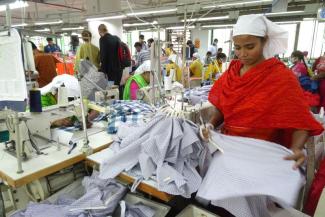Editorial
Global social contract

In developing countries, masses of people work in the informal sector. Those who contribute to their family’s business – a small farm or a vegetable shop, for example – are not entitled to a minimum wage, limits on working hours or social protection. Sadly, informal employment is common in formal economy too, in the private as well as the public sector.
Informal employment is actually becoming ever more important, not least in Africa, where economies are growing and new jobs are being created. The bad news is that it is not happening at a pace that would keep up with population growth, and most new employment tends to be informal.
Trade unions demand that labour laws must apply to all workers, including those in the informal sector. The right to organise and bargain collectively is especially important. It is what empowers workers to join forces in the fight for better conditions.
For huge numbers of marginalised people, decent work would mean inclusion in social life and social justice. At the same time, decent work would benefit economies in general. People’s job performance and productivity hinge on being treated well.
Ultimately, employers, employees and governments are all in it together, so they’d be well advised to cooperate on prudent rules for labour relations.
Education and skills are important. The more demanding jobs are, the better qualified employees must be. The better qualified they are, the stronger their bargaining power becomes. While a daily labourer can be replaced easily, a skilled worker can insist on adequate pay and fair working conditions. For anyone who lacks individual bargaining power however, the decency of work depends on labour laws not only being passed, but enforced as well.
Education and skills are tickets to good employment. Unfortunately, discrimination blocks many people’s aspirations. Where girls, children with disabilities and members of minority communities are disadvantaged in schools or even excluded from school, they are most unlikely to get the best jobs later in life. In many world regions, moreover, patronage systems ensure that only members of dominant social groups get attractive positions. On their own, individuals can hardly break through such glass ceilings.
For all work to become decent, labour markets must change at national and global levels. Moreover, education systems and entire societal power-structures need to be reformed. Otherwise, decent work for the majority of people in Africa, for example, will remain a dream.
In a globalising world, everyone must show concern for labour everywhere. International pressure can make a difference, as is evident in Bangladesh, where various domestic and foreign parties are working on improving labour standards and social welfare. SDG 8 can be read as the inkling of a global social contract. Humanity must now live up to this promise.
Katja Dombrowski is member of the editorial team of D+C Development and Cooperation / E+Z Entwicklung und Zusammenarbeit.
euz.editor@fs-medien.de













